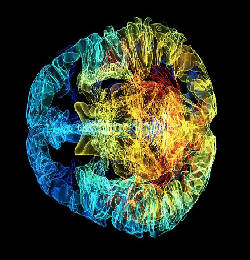March 2019 Ideas and Innovation
Read the articles selected in March 2019
Das überforderte Genie
By Matthias Eckoldt
Source: Die Zeit, 13 March
It was not Leonardo’s fault to be celebrated as an universal genius in the fascist epoch. The cult of the genius has led to ascribe him 80 inventions, like the Panzer. So, if it is true that his sketches owe their visionary evidence to the strength and the precision given by his technique, this article is surely worthy of a reply.
Read more:
Countries look at ways to tinker with Earth’s thermostat
Source: The Economist, 14 March
Provided that the reduction of greenhouse gases is indispensable to stop climate change, the options of geoengeenering like solar shades are useful for cooling the Planet. But also technological innovation is powerless in front of the lack of political will.
Thousands of scientists are backing the kids striking for climate change
By Matthew Warren
Source: Nature, 14 March

The reasons of the schools’ protest for the climate don’t bump into the reasons of education, if the politics with its decisions steal any possibility of a future to the young generations. So 12.000 scientists have signed an endorsement of the protest, after decades of vane warnings to governments.
Read more:
https://www.nature.com/articles/d41586-019-00861-z
New fuel cell could help fix the renewable energy storage problem
By Robert F. Service
Source: Science, 12 March
The shift to the renewables could be achieved at low cost through new cells created to store in a long term the electricity produced in excess from solar and wind energy, converting it in chemical fuel, to change it back in electricity available for the consumption.
Read more:
Neurosexism: the myth that men and women have different brains
By Lise Eliot
Source: Nature, 27 February

The technological tools of image have shown the scarce biological fundament of the gendered brain. Sexual differences are impressed on the brain much more by the environment and the culture, than by nature, as it appears evident among newborns.
Read more:
https://www.nature.com/articles/d41586-019-00677-x
Where are all the women in tech?
By Ileana Epzstajn
Source: oecd.org
The main problem which prevents women from choosing the STEM sector is the lack of self-confidence and the fear of sexist behavior and practices in the place of work. Most of the jobs put at risk by the fourth digital revolution are held by women.
Read more:
http://oecdobserver.org/news/fullstory.php/aid/6108/Where_are_all_the_women_in_tech_.html
La techno française se mixe au féminin
By Amaury Giraud
Source: Le Figaro, 26 January
Also the techno-music suffers from a female under-representation. The introduction of the digital plateforms has made more visible the female participation of female DJs, videoasts and producers in the world’s electronic scene, thanks to their artistic quality and not to their sex or despite it.
Un livre vif et pédagogique montre comment les algorithmes reproduisent les préjugés sexistes. Une autre technique est possible.
Source: Libération, 4 March
The low female presence in the AI sector has consequences even on the conception of the AI. Machines reproduce the stereotypes and the bias of their programmers. It is desirable and possible an artificial intelligence which would level bias of sexual and racial kind.
A newly discovered stem cell that keeps bones growing
By Manuela Wuelling & Andrea Vortkamp
Source: Nature, 27 February
Researchers identified in young mammals’ bones dormant stem cells with the potential to develop an asymmetric process of self-renewing and differentiation which presents characteristics similar to that of bone-marrow of stem cells and refills the growth plate.
Read more:
https://www.nature.com/articles/d41586-019-00527-w
Motor cortical control of vocal interaction in neotropical singing mice
By Daniel E. Okobi et al.
Source: Science, 1 March 2019
Vocal exchanges between animals, as signs of social interactions and part of human speech, rest on the ability to put in motion multi-layered sensory motor systems controlled by an orofacial motor cortical region.
Read more:
http://science.sciencemag.org/content/363/6430/983
Pourquoi l’intelligence artificielle n’est pas intelligente
By Rémi Demichelis
Source: Les Echos, 1 February
The artificial intelligence has the limit of being programmed and to work in sight of the tasks assigned. It is unlikely a future with a technological intelligence equipped with consciousness and sensitivity, and able to make experience and to establish relations as we are.
Die grosse Wirkung der kleinen Teilchen
By Veronika Scentpétery-Kessler
Source: Der Standard, 27 February

After twenty years of studies on nanotechnologies, national authorities are committed to elaborate normatives more retailed on their safeness for consumers . In the meanwhile, research is focused on the classification of this mosaic of particles and the observation of their whole cycle of life.
Info
- Pubblicato il : 01/04/2019 Modificato il : 04/04/2019

